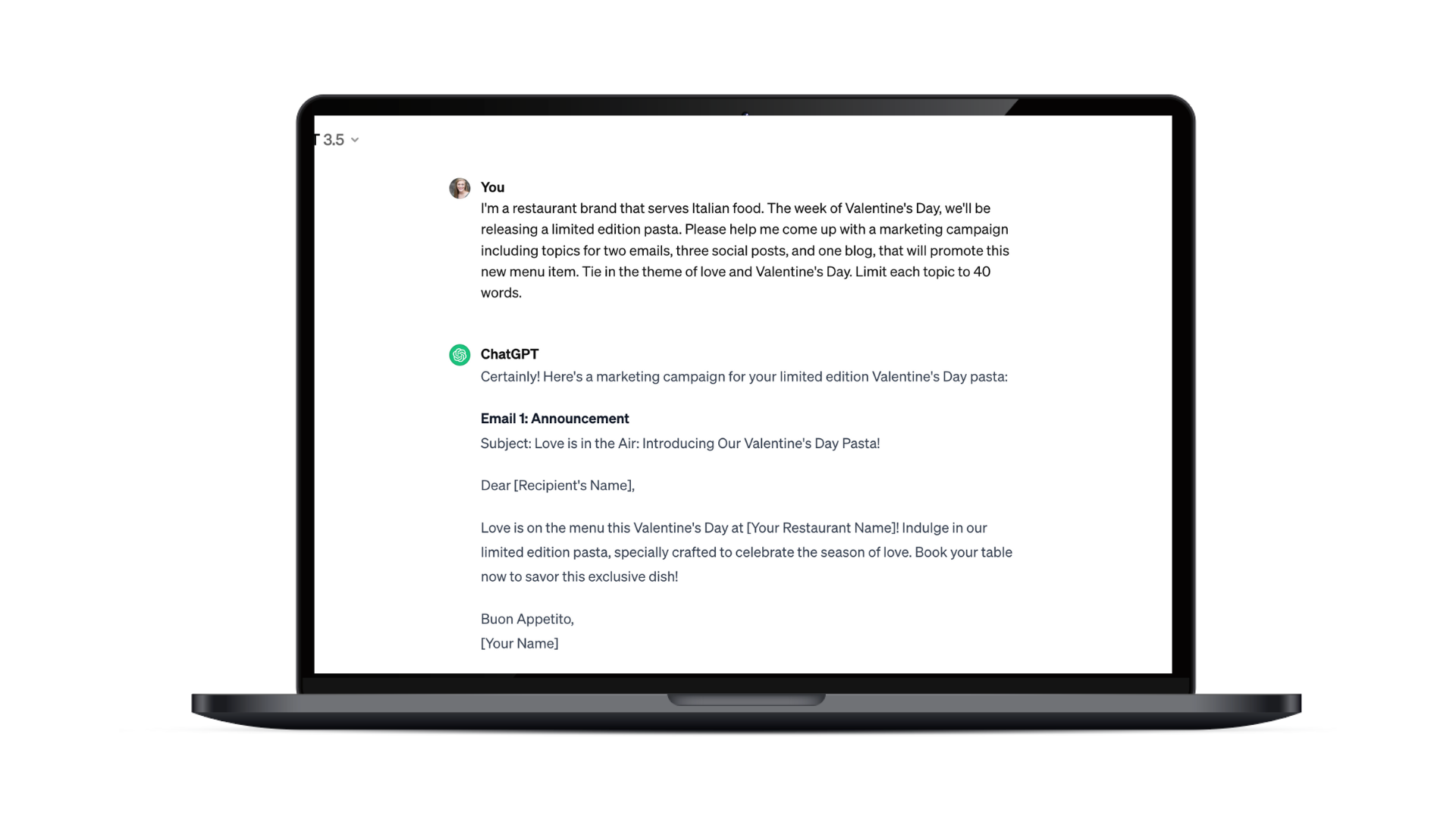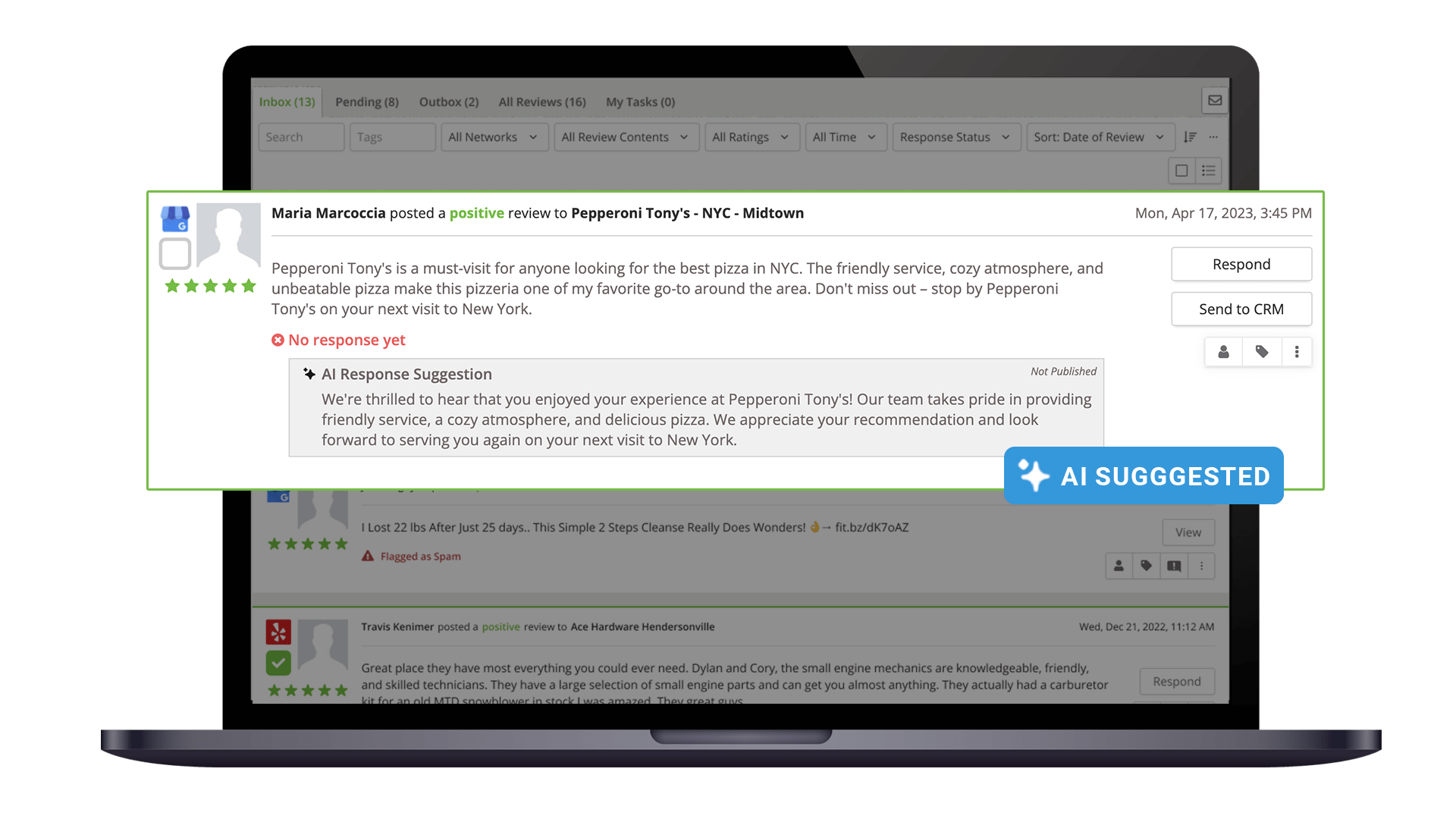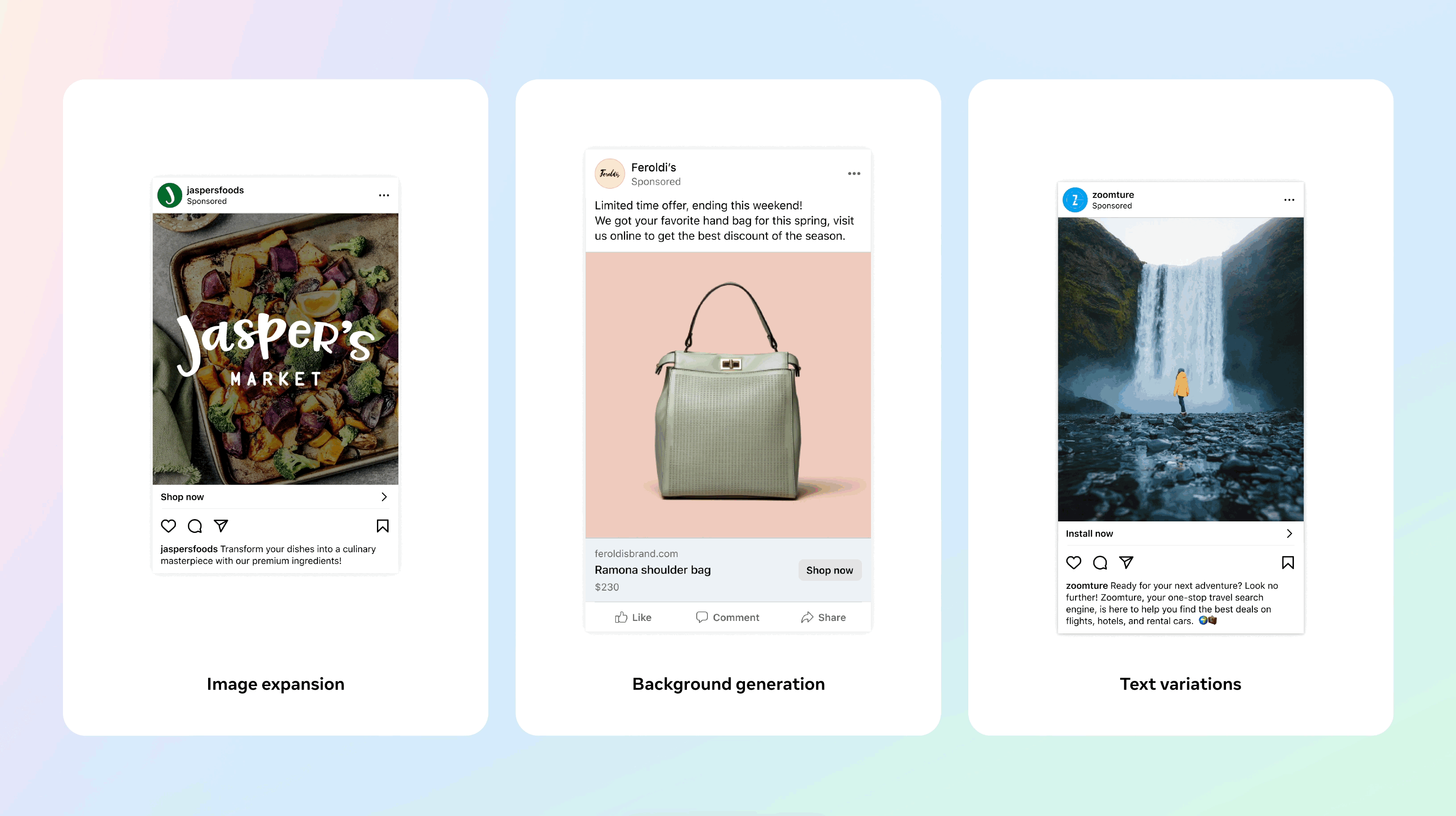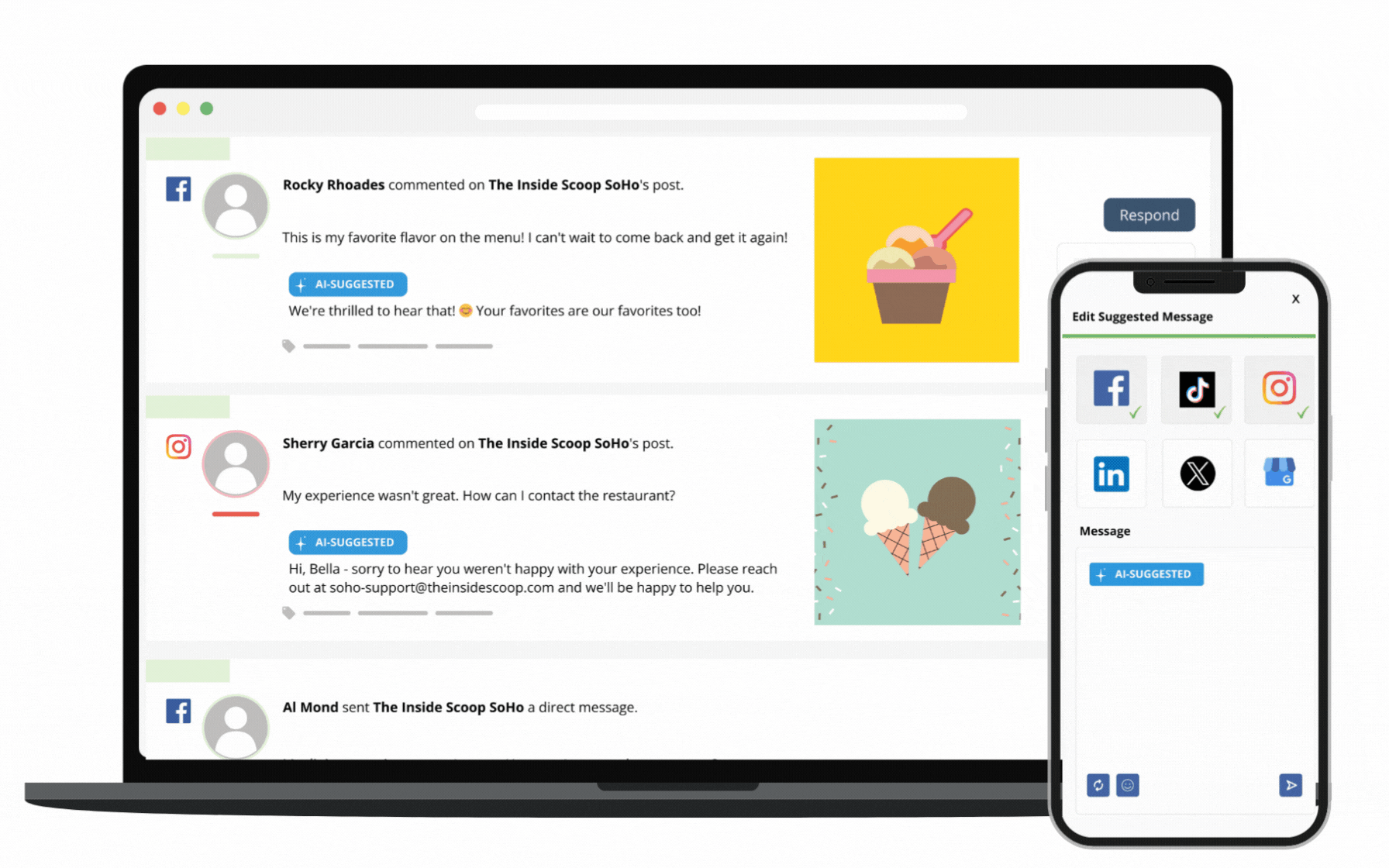The Complete Guide to Using AI in Digital Marketing

The Complete Guide to Using AI in Digital Marketing
Sixty-five percent of multi-location marketers have incorporated generative artificial intelligence (AI) into their marketing technology (MarTech) stack. The data speaks for itself. AI in digital marketing is already prevalent and will continue to increase in popularity.
Additionally, nearly 7 out of 10 marketers believe that marketers leveraging AI will replace those that don’t. If your brand isn’t using AI in its digital marketing efforts, you risk falling behind the competition.
Regardless of where your brand is in its AI journey, this blog can help!
We’ll break down what AI in digital marketing looks like and five ways to incorporate AI into your marketing strategy.
AI and Digital Marketing
AI in digital marketing means using artificial intelligence technologies to analyze data, automate tasks, and make data-driven decisions to enhance marketing strategies and campaigns.
As you’d expect, using AI to automate tasks and analyze data can save your marketing team time and effort, allowing your team to focus on and improve other aspects of your digital marketing strategy. AI can also help amplify the output of your efforts, improving your bottom line.
Now that you understand what AI in digital marketing is and how it benefits your business, let’s look at how you can incorporate it into your marketing strategy.
5 Ways to Use AI in Digital Marketing
While there are countless ways to use AI in digital marketing, we’ll look at some of the most common tactics. As your brand becomes more comfortable with the technology, you can add it to more areas of your marketing plan.
1. Curate Content More Efficiently
Generative AI tools can help you develop content in a matter of seconds. Whether you’re creating a social post, brainstorming ideas for your next marketing campaign, or developing thought leadership content, generative AI can support your efforts.
For instance, if you’re a restaurant brand that wants to create a campaign around a new special that will be released the week of Valentine’s Day, you can ask generative AI tools like ChatGPT or Jasper to create a plan for you. The more detail you give the AI tool, the better the output.

It’s worth mentioning that while the outputs will likely be helpful, human oversight is always needed to ensure no mistakes occur and the content adheres to your brand guidelines.
2. Respond to Reviews and Social Engagements
More than three-quarters of people (76%) expect companies to respond to comments on social media, and 83% expect brands to respond to these comments within a day or less. Additionally, among consumers who read reviews, 97% read businesses’ responses to reviews.
Engaging with your brand’s target audience on social media is an essential part of your digital marketing strategy..
Generative AI can help streamline these processes as well. Like content creation, you can feed your generative AI tools a social media comment or review you received and ask it to curate a response.
Taking it a step further, some AI marketing technology (MarTech) tools also incorporate generative AI into their platforms and will do the prompting and responding for you. More on that later.

Read our blog post on AI in social media for more details on how to best utilize AI in your social campaigns and overall strategy.
3. Automate Ad Targeting to Reach More, Targeted Customers
Another component of a solid digital marketing strategy is social advertising. One of the main goals of digital advertising is to reach more of your brand’s target audience.
AI can analyze user data to target ads more effectively. This helps to ensure your paid campaigns reach the right audience at the right time; thus, improving conversion rates and ROI.
Beyond audience targeting, marketers can use AI for advertising in other ways. Take Meta, for example; it has various generative AI features such as image expansion, background generation, and text variations that marketers can leverage.

For a more in-depth look, read our article onMeta’s AI features for advertisers.
4. Execute a Chatbot Strategy for Customer Service
In today’s digital-first world, consumers expect their questions to be answered promptly. AI-powered chatbots can provide instant customer support, answer queries, and guide users through the sales funnel, improving customer satisfaction and reducing response times.
According to one study, approximately 90% of customer queries are resolved in 10 messages or less.
Using AI fundamentals, chatbots can also gather and analyze data from interactions, enabling brands to gain insights into potential and current consumer preferences and behaviors.
For instance, are your most frequent questions about cost? Or is there a positive sentiment around store in one specific area or region? These insights are essential to know about and analyze.
Ultimately, chatbots can streamline operations by:
- Providing 24/7 support
- Improving resident services
- Driving conversions.
The ROI is undeniable as chatbot marketing saves your brand time, resources, and money.
5. Analyze Customer Sentiment and Optimize
Lastly, brands can include AI in digital marketing to analyze customer sentiment and make improvements. AI can analyze online conversations to gauge sentiment around a brand or product.
This information gives your marketers insight into public perceptions of your brand or competitors. Your marketers can then use this data to make more informed decisions and optimize marketing efforts accordingly.
Keeping with the restaurant example we mentioned earlier, through this analysis of customer sentiment, you may find multiple negative online mentions about wait times. You can then use this information to teach potential diners how to make a reservation or encourage them to join your waitlist before coming in.
As a marketer, maintaining customer satisfaction is critical, and a look into the minds of your customers can help you achieve this.
Find the Right Technology to Support Your AI Journey
Now that you fully understand how to use AI in digital marketing, it’s time to find the right technology to support your journey! If you need help figuring out where to start, consider SOCi.
SOCi is the CoMarketing Cloud for multi-location enterprises and provides one central place for marketers to scale their localized marketing efforts.
Our AI automation layer, SOCi Genius, leverages advanced data science, best-in-class generative AI, “on-brand” training models, and leading localization and automation tools to make data-driven decisions that fuel more innovative marketing strategies and increase ROI.
For instance, our Genius Reviews solution uses AI to generate on-brand responses to online reviews and ratings in seconds. Moreover, our recently released Genius Social enables you to interact with social media engagements and generate highly engaging and location-specific content.

It’s time to incorporate AI into your digital marketing efforts, and SOCi is here to help. Request a demo today to learn more!





